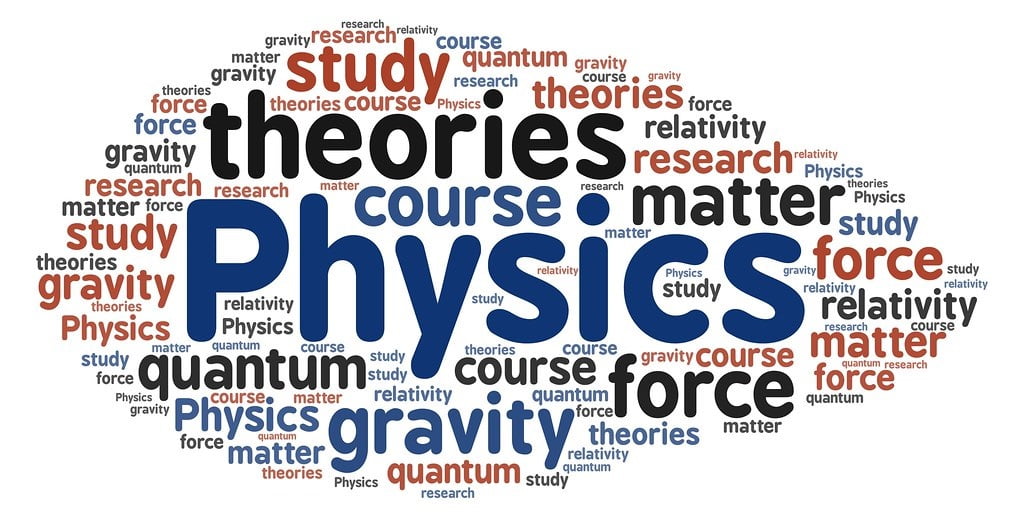Physics plays an important role in all the natural sciences as it underlies the physical universe and applies continuously to people’s ordinary lives. Many students find physics difficult to understand and study well. Here’s how to study physics for beginners.

Want to Study Physics? Here are Easy Ways To Learn Physics
Physics for Beginners
Physics is one of the very important branches of natural sciences. The main goal of physics is to understand the laws that govern nature. But when talking about learning, the learning process, in general, is not that easy, and physics, in particular, is not an easy thing to learn, nor a complicated matter at the same time.
In fact, there are many ideas in physics, and like other sciences, you do not stop to find an answer to a question until the door of many other questions is opened.
The general idea of these questions – or perhaps we could say that physics is trying to do the following – is to know the very basic quantities measured in the universe such as velocity, electric field, and energy. Nor can we forget the attempts and efforts made throughout history in order to find a very basic and comprehensive description of the universe.
The other thing that physics does not stop trying to reach is linking and finding a relationship between these basic and measured quantities, such as Newton’s laws, conservation laws, special relativity laws, and others. This is done by using words, equations, graphs, models, and any other method that enables us to illustrate this relationship in a way that is easy for humans to understand.
The Importance of Physics
Physics is considered one of the most important sciences at all. Every person should the importance of physics and learn its most important principles, whether those that follow classical physics or modern physics.
Physics is a science that expands human perceptions and makes them more capable of understanding what is going on around them, in addition to the pleasure obtained from studying its principles, and the various applications that have been developed after the development of physical principles.
Physics helps people understand the universe and the various natural phenomena that take place around it. That is why physics is taught in school.
Also, studying some physics courses is considered compulsory for some majors. Like engineering disciplines, engineering is an applied science based on basic physical principles.
With all the importance of this interesting science, many students find physics very difficult and consider this subject as one of the subjects that have been imposed on them. Here are some of the most prominent methods and tips that help to understand and study physics well.
How do I study physics?
First, it is necessary to start by remembering the concepts and laws, since it is not possible in any way to separate the law from the concept. The concept cannot be explained, simplified, and built upon unless we build it in a consistent manner using the logical tool, which is mathematics, in addition to the difficulty of understanding the concept or theory unless we break it down and simplify it, and this is the work of mathematics.
Fortunately, complex physical laws are usually built from simpler, more tangible laws, with the help of mathematics. Therefore, it is necessary to understand mathematics and the simple parts that make up the law, in other words, in order to be able to understand a law or a theory, we must understand the method of its derivation, not memorizing it, but if the law is empirical, then the experience must be understood.
Also, solving many issues and problems will lead to the consolidation of the concept further. Connecting will be easy to do when solving many physical problems. But it should be noted that the physics problems are different in level, some of them may require work for five hours to be able to reach the solution to this problem. And the steps to solve the problem ay include:
- Realize what the problem is.
- Describe the problem in terms of the topics related to it.
- Make a plan to solve the problem.
- Apply the proposed solution from the plan.
- Find and verify the solution.
Finally, there is a very wonderful way to study in general, which is the method called the “Pomodoro” method, which is a method based on the timing of an hour for 25 minutes. During this period, a task is accomplished (reading a page, solving a problem, or deriving a law) as during the completion of that task the study will remove all distractions from you, and adhere to the time period in the work.
How do I understand physics?
Understanding physics is not easy, as it will require the student a lot of effort and time, and perhaps more than he himself imagines. In addition to the fact that physics contributes to many fields such as chemistry, biology, and computer science, it is indispensable in our daily lives, and therefore a correct understanding of it will help in the development of many scientific and life fields.
Learn Basic Physics
Basic physics can be divided into two main sections, namely classical physics and modern physics, and each of these two sections is divided into other sections, each of which is divided into more parts, but we will only talk about it here in general, as what matters for understanding physics is:
Classical mechanics: It is the part of physics that is concerned with the study of linear and rotational motion, and includes Newton’s laws, Lagrangian mechanics, Hamilton, and others.
Electricity and magnetism: the part that studies static and kinetic electricity, electric circuits, magnets, and their applications.
Optics: which is concerned with the study of optical phenomena (i.e. related to light) such as refraction, reflection, interference, diffraction, and electromagnetic waves as waves only, in contrast to modern physics, which considers light as a dual case of a particle and a wave.
Thermodynamics: which is concerned with the study of thermal interaction between bodies.
Statistical mechanics: that part of physics that is concerned with studying systems from a statistical point of view (as systems are made up of a huge number of bodies like Avogadro’s number), and this field relies heavily on the ideas of thermodynamics.
Electronics: It includes diodes, coils, and capacitors.
Special Theory of Relativity: It studies objects that move at very high speeds, close to the speed of light.
Ordinary quantum mechanics: It is concerned with the study of very small systems (atomic and subatomic), and focuses on the idea of quantization in a very large way.
Astronomy: Astronomy is an integral part of the study of physics, and there are a lot of interesting things that are large physical systems such as the motion of planets, and Kepler’s laws (which are part of classical mechanics).
You Need Mathematics to Properly Understand Physics
In order to properly understand physics, it is necessary to learn mathematics; Since mathematics is like the language of physics, physical theories are expressed only by consistent mathematical models and steps.
Mathematics is the tool used to express physics because mathematics is a very logical science, and physics needs to be expressed very precisely in order to use and advance it properly.
Also, the mathematical procedure followed must have a physical meaning in order for the mathematical representation of physics to be considered correct.
Among the mathematical topics that must be learned and known:
- Sets of numbers such as the set of integers, the set of natural numbers, the set of real numbers, and the set of complex numbers.
- Linear algebra and its contents of vector space, matrices, and others.
- Calculus of limits, calculus, integration, applications of calculus, vectors, sequences and series.
- Solve differential equations of all kinds.
- Special conjunctions.
- Engineering.
It is worth noting that the need for these mathematical skills arises at different stages in one’s study of physics, from basic school to advanced university levels.



